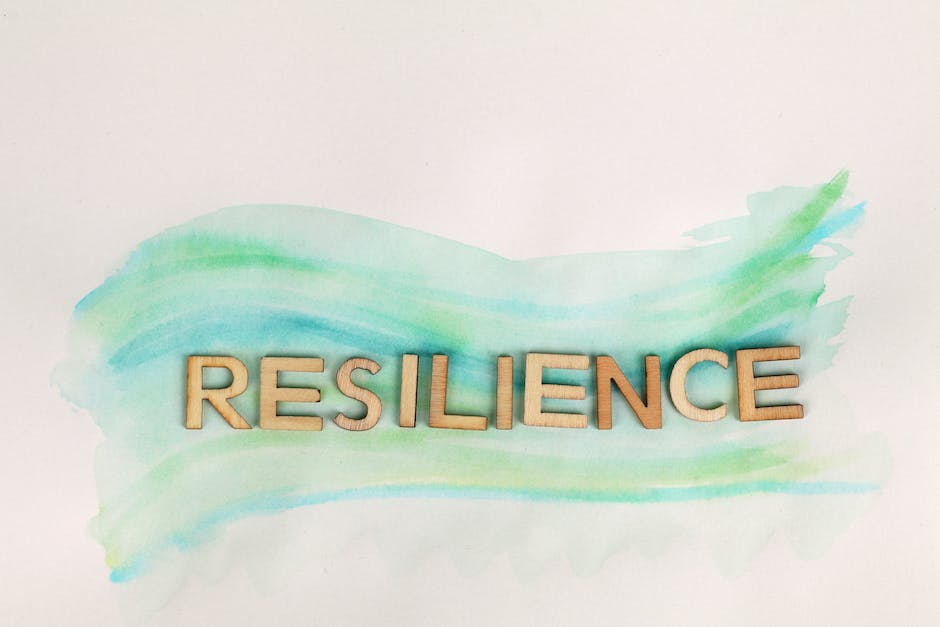Table of Contents
“Building resilience: Empowering you to overcome setbacks and thrive in your career.”
Introduction
Building resilience and overcoming setbacks in your career is crucial for long-term success and personal growth. In today’s fast-paced and competitive work environment, setbacks are inevitable. However, by developing resilience, you can bounce back from these challenges, adapt to change, and continue progressing towards your professional goals. In this article, we will explore effective strategies and practical tips to help you build resilience and navigate through setbacks in your career.
The Importance of Developing Resilience in Your Career

Resilience is a crucial trait to possess in any career. It is the ability to bounce back from setbacks, adapt to change, and keep moving forward. In today’s fast-paced and competitive work environment, setbacks are inevitable. Whether it’s a failed project, a missed promotion, or a job loss, setbacks can be disheartening and demotivating. However, by developing resilience, individuals can not only overcome these setbacks but also grow and thrive in their careers.
Resilience is not something that people are born with; it is a skill that can be developed and strengthened over time. Research has shown that individuals who are resilient are more likely to succeed in their careers and experience higher levels of job satisfaction. They are better equipped to handle stress, navigate through challenges, and maintain a positive mindset.
One of the key aspects of developing resilience is cultivating a growth mindset. This mindset is the belief that abilities and intelligence can be developed through dedication and hard work. People with a growth mindset see setbacks as opportunities for growth and learning. They view failure as a temporary setback rather than a reflection of their abilities. By adopting a growth mindset, individuals can reframe setbacks as learning experiences and use them as stepping stones to future success.
Another important factor in building resilience is developing strong emotional intelligence. Emotional intelligence is the ability to recognize and manage one’s own emotions and the emotions of others. It involves being aware of one’s own strengths and weaknesses, having empathy for others, and effectively communicating and collaborating with colleagues. By developing emotional intelligence, individuals can better handle setbacks by understanding their own emotions and reactions, as well as those of others. This enables them to respond to setbacks in a more constructive and productive manner.
Building a strong support network is also crucial in developing resilience. Having a network of colleagues, mentors, and friends who can provide guidance, support, and encouragement can make a significant difference in overcoming setbacks. These individuals can offer valuable advice, share their own experiences, and provide a fresh perspective. They can also serve as a sounding board for ideas and help individuals stay motivated and focused on their goals.
In addition to these factors, self-care plays a vital role in building resilience. Taking care of one’s physical and mental well-being is essential for maintaining resilience in the face of setbacks. This includes getting enough sleep, eating a balanced diet, exercising regularly, and engaging in activities that bring joy and relaxation. By prioritizing self-care, individuals can recharge and rejuvenate, enabling them to better cope with setbacks and maintain a positive outlook.
In conclusion, developing resilience is crucial for overcoming setbacks and thriving in one’s career. By cultivating a growth mindset, developing emotional intelligence, building a strong support network, and prioritizing self-care, individuals can build the resilience needed to navigate through challenges and setbacks. Resilience is not only a valuable skill in the workplace but also in life. It allows individuals to adapt to change, learn from failures, and ultimately achieve their goals. So, invest in building resilience, and watch your career soar to new heights.
Strategies for Overcoming Setbacks and Bouncing Back Stronger
In the course of our careers, setbacks are inevitable. Whether it’s a missed promotion, a failed project, or a job loss, setbacks can be disheartening and demoralizing. However, it’s important to remember that setbacks are not the end of the road. With the right strategies and mindset, you can build resilience and bounce back stronger than ever.
One of the first steps in overcoming setbacks is to acknowledge and accept your emotions. It’s natural to feel disappointed, frustrated, or even angry when faced with a setback. Instead of suppressing these emotions, allow yourself to feel them and process them. This will help you move forward and prevent them from holding you back.
Once you have acknowledged your emotions, it’s time to reframe your setback as an opportunity for growth. Setbacks can provide valuable lessons and insights that can help you improve and develop in your career. Take the time to reflect on what went wrong and what you can learn from the experience. This will not only help you overcome the setback but also make you more resilient in the face of future challenges.
Another strategy for overcoming setbacks is to seek support from others. Reach out to mentors, colleagues, or friends who can provide guidance, advice, and encouragement. Surrounding yourself with a strong support network can help you gain perspective, find new opportunities, and regain your confidence. Remember, you don’t have to face setbacks alone.
In addition to seeking support, it’s important to take care of yourself during challenging times. Setbacks can be mentally and emotionally draining, so it’s crucial to prioritize self-care. Make sure you are getting enough rest, eating well, and engaging in activities that bring you joy and relaxation. Taking care of your physical and mental well-being will help you stay resilient and bounce back stronger.
Furthermore, it’s essential to maintain a growth mindset when faced with setbacks. Instead of viewing setbacks as failures, see them as opportunities for growth and improvement. Embrace a mindset of continuous learning and development. This will help you stay motivated, adapt to new challenges, and seize new opportunities that come your way.
Lastly, it’s important to set realistic goals and take small steps towards achieving them. Break down your larger career goals into smaller, manageable tasks. This will help you stay focused, motivated, and make progress even in the face of setbacks. Celebrate your achievements along the way, no matter how small they may seem. This will help you stay positive and motivated as you work towards overcoming setbacks.
In conclusion, setbacks are a natural part of any career journey. However, with the right strategies and mindset, you can build resilience and overcome setbacks. Acknowledge and accept your emotions, reframe setbacks as opportunities for growth, seek support from others, prioritize self-care, maintain a growth mindset, and set realistic goals. By implementing these strategies, you can bounce back stronger and continue to thrive in your career. Remember, setbacks are not the end of the road, but rather stepping stones towards success.
Building a Supportive Network to Enhance Resilience in Your Career
Building a Supportive Network to Enhance Resilience in Your Career
In today’s fast-paced and competitive world, setbacks in our careers are inevitable. Whether it’s a missed promotion, a failed project, or a job loss, these setbacks can be disheartening and can shake our confidence. However, the key to overcoming these setbacks and building resilience lies in having a strong support network.
A supportive network can provide us with the emotional support, guidance, and encouragement we need during challenging times. It can help us bounce back from setbacks and navigate through difficult situations. So, how can we build a supportive network to enhance resilience in our careers?
First and foremost, it’s important to cultivate relationships with colleagues and mentors who can offer valuable insights and advice. These individuals can provide us with a fresh perspective on our setbacks and help us identify areas for improvement. By seeking their guidance, we can learn from their experiences and gain valuable knowledge that can help us overcome obstacles in our careers.
Additionally, it’s crucial to surround ourselves with positive and like-minded individuals who share our goals and aspirations. These individuals can serve as a source of motivation and inspiration, pushing us to strive for success even in the face of setbacks. By surrounding ourselves with people who believe in us and our abilities, we can build the resilience needed to overcome any challenges that come our way.
Furthermore, joining professional organizations and attending networking events can also be beneficial in building a supportive network. These platforms provide opportunities to connect with individuals from various industries and backgrounds, expanding our network and opening doors to new opportunities. By actively participating in these events, we can build relationships with individuals who can offer support and guidance during setbacks in our careers.
In addition to building relationships with colleagues and mentors, it’s important to prioritize self-care and seek support from friends and family. Our loved ones can provide us with a safe space to express our frustrations and fears, offering a listening ear and words of encouragement. By sharing our setbacks with them, we can gain a fresh perspective and find solace in their support.
Moreover, seeking professional help, such as career coaches or therapists, can also be beneficial in building resilience. These professionals can provide us with the tools and strategies needed to overcome setbacks and develop a resilient mindset. They can help us identify our strengths, set realistic goals, and develop a plan to move forward in our careers.
Lastly, it’s important to remember that building a supportive network is a two-way street. Just as we seek support from others, we should also be willing to offer support and guidance to those in our network. By being a source of encouragement and inspiration to others, we not only strengthen our relationships but also enhance our own resilience.
In conclusion, setbacks in our careers are inevitable, but building a supportive network can help us overcome these challenges and develop resilience. By cultivating relationships with colleagues, mentors, and like-minded individuals, joining professional organizations, seeking support from friends and family, and seeking professional help when needed, we can build a strong support system that will help us navigate through setbacks and achieve success in our careers. Remember, resilience is not about avoiding setbacks, but about bouncing back stronger and wiser.
Cultivating a Growth Mindset to Overcome Career Setbacks
In today’s fast-paced and competitive world, setbacks in our careers are inevitable. Whether it’s a missed promotion, a failed project, or a job loss, these setbacks can be disheartening and demotivating. However, it’s important to remember that setbacks are not the end of the road. With the right mindset and strategies, you can build resilience and overcome these setbacks to achieve success in your career.
One of the key strategies for overcoming career setbacks is cultivating a growth mindset. Coined by psychologist Carol Dweck, a growth mindset is the belief that our abilities and intelligence can be developed through dedication and hard work. In contrast, a fixed mindset is the belief that our abilities are fixed and cannot be changed.
Individuals with a growth mindset view setbacks as opportunities for growth and learning. They see challenges as a chance to develop new skills and improve themselves. On the other hand, those with a fixed mindset tend to view setbacks as personal failures and may give up easily.
To cultivate a growth mindset, it’s important to embrace challenges and see them as opportunities for growth. Instead of avoiding difficult tasks, seek them out and approach them with a positive attitude. This will help you develop new skills and expand your capabilities.
Another important aspect of cultivating a growth mindset is embracing failure as a learning experience. Instead of dwelling on your mistakes, reflect on them and identify what you can learn from them. This will help you develop resilience and bounce back stronger from setbacks.
In addition to cultivating a growth mindset, it’s important to set realistic goals and have a clear vision of what you want to achieve in your career. Setting goals gives you a sense of direction and purpose, and helps you stay motivated during challenging times.
When setting goals, it’s important to make them specific, measurable, achievable, relevant, and time-bound (SMART). This will help you stay focused and track your progress. Break down your goals into smaller, manageable tasks and celebrate your achievements along the way. This will help you stay motivated and build momentum.
Building a strong support network is also crucial for overcoming career setbacks. Surround yourself with positive and supportive individuals who believe in your abilities and can provide guidance and encouragement. Seek out mentors who have experienced similar setbacks and can offer valuable advice and insights.
Networking is another important aspect of building a support network. Attend industry events, join professional organizations, and connect with like-minded individuals in your field. These connections can provide valuable opportunities for learning, collaboration, and career advancement.
Lastly, it’s important to take care of yourself both physically and mentally. Set aside time for self-care activities such as exercise, meditation, and hobbies that bring you joy. Taking care of your well-being will help you stay resilient and better equipped to handle setbacks.
In conclusion, setbacks in our careers are inevitable, but they don’t have to define us. By cultivating a growth mindset, setting realistic goals, building a strong support network, and taking care of ourselves, we can overcome setbacks and achieve success in our careers. Remember, setbacks are not failures, but opportunities for growth and learning. Embrace them, learn from them, and keep moving forward.
Q&A
1. How can I build resilience in my career?
Develop a growth mindset, practice self-care, seek support from mentors or colleagues, set realistic goals, and learn from failures.
2. What strategies can help me overcome setbacks in my career?
Accept and process emotions, reframe setbacks as learning opportunities, develop problem-solving skills, maintain a positive attitude, and persevere through challenges.
3. How important is self-care in building resilience?
Self-care is crucial in building resilience as it helps manage stress, maintain physical and mental well-being, and provides the energy and focus needed to overcome setbacks.
4. Why is seeking support important in overcoming career setbacks?
Seeking support from mentors or colleagues can provide guidance, perspective, and encouragement during difficult times. It can also help in gaining new insights and strategies to overcome setbacks effectively.
Conclusion
In conclusion, building resilience and overcoming setbacks in your career requires a combination of mindset, strategies, and support. It is important to develop a growth mindset, embrace challenges, and learn from failures. Setting realistic goals, seeking feedback, and adapting to change are also crucial. Building a strong support network, both personally and professionally, can provide encouragement and guidance during difficult times. By implementing these strategies, individuals can develop resilience and navigate setbacks in their career more effectively.




